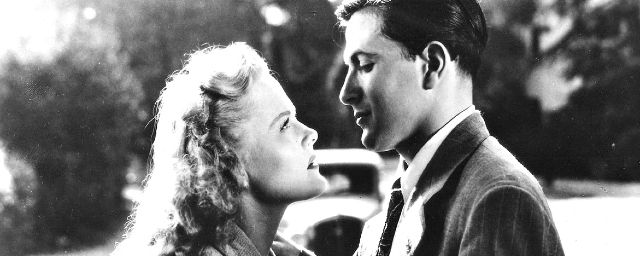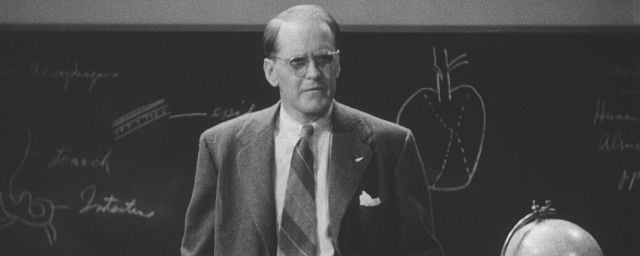With its scandalous and real childbirth scenes, “Les Fausses Pudeurs” (1945) was so controversial that separate screenings for women and men were organized. And yet there was success…
False Modesty (Mom and Dad from its original title) is an American film directed by William Beaudine and released in 1945 in the United States. But be careful, you are dealing with one of the most controversial feature films of all time, a feature film that, despite numerous legal challenges (including 418 complaints and nearly 428 lawsuits during its broadcast!) and its images “scandalous” (including real birthing scenes) nevertheless became one of the most profitable of the 1940s, thanks to an unprecedented marketing campaign.
Return to 1940s America, a Puritan era where Christian morality prevailed in many American homes. The sexual revolution of the 1960s wouldn’t take place until two decades later, so the vast majority of Americans weren’t ready to talk about premarital sex—let alone watch movies on the subject.
In a way, producer Kroger Babb, who made the film a box office success, was a visionary. He understood that there is no such thing as bad press – quite the contrary. So, as Variety reports, he scraped together a meager budget of $67,000 from investors and spent six days in 1944 at five separate studios making one of the most controversial films of its decade. Back to the facts.
What is it about ?
Warning spoilers! The remainder of this article contains key elements of the plot of “Fausses Pudeurs”.
False Modesty is, on the surface, a simple film about teenage love. Joan Blake (June Carlson) is in love with dashing pilot Jack Griffin (Bob Lowell). After relentlessly courting the young single woman, they have sex. Joan knows nothing about sex and, after her affair, asks her mother (Lois Austin) for “hygiene books”. Hygiene books were an effort by progressives of the day to regulate sexual behavior and disseminate information about sexual health – a sort of sex education class. Joan’s mother, of course, refuses because Joan is not married. That’s when tragedy strikes.

Hallmark Productions
While Jack’s plane crashes causing his death, Joan discovers that she is pregnant, out of wedlock: a huge moral error for the time. Unable to talk to her parents, the troubled young woman turns to her teacher, Carl Blackburn (Hardie Albright). Carl is unpopular with locals for teaching sex education classes before being fired. He blames Joan’s parents for Joan’s ignorance, an ignorance that unwittingly put her in this situation. Joan then confronts her mother, firmly believing that parents have a moral obligation to tell their children the truth about such things, and there the film radically changes tone.

Hallmark Productions
False Modesty takes a very medical turn, presenting the public with graphic images of the female anatomy, images of real births parade on the screen with screaming babies or, in certain sequences of the film, silent, stillborn babies . The public is treated to images of cesarean births in addition to conventional births.
The majority of the film is therefore just filler with clinical scenes: the spectacle is surprising and provokes disgust, anger, but also curiosity among the audience. It is no wonder that the film was condemned by the NDL (National Legion of Decency), a censor which, at the time, sought to exert control over the content of films by persuading its members not to watch certain projects offensive to Christian morality. The NDL therefore tried everything to ban the feature film but despite this – and multiple trials – the film was a huge success.
Kroger Babb, marketing genius
About the False Modesty, Washington Post critic Kenneth Turan said that the film did not “thrive because of its birth pictures or because of its puerile plot” but that its success “stemmed rather from Babb’s extraordinary promotional abilities. ” Indeed, producer Kroger Babb distributed 300 copies of the film in US markets in the weeks preceding its release and thus caused a moral panic himself, attracting the attention of local newspapers by sending them letters and religious tracts to protest against the moral basis of the project. And yes, he outright protested against his own film to create “the buzz”, as we would say today!
According to biographer Eric Schaefer, in his book Bold! Daring! Shocking! True!: A History of Exploitation Films (1999), the letters he sent were fake affidavits from imaginary mayors of neighboring towns who expressed concern about young local women who had seen the film and whose sexuality had been aroused because of it. The idea was to overwhelm sleepy little towns with letters to create a (false) air of controversy around the film.

Hallmark Productions
As a result, local cinemas held limited adult-only screenings that were segregated: women on one side, men on the other, all accompanied by live lectures from “intrepid hygiene commentator Elliot Forbes” . Who was Elliot Forbes? Nobody and everyone, a fictional entity played by several actors, lecturing the audience on issues of sexuality – much like the professor in the film. Sometimes “nurses” were also present in case people fainted from the shocking images – or so Joe Bob Briggs wrote in his book Profoundly Disturbing: The Shocking Movies that Changed History (2003).
An undeniable impact
False Modesty was the center of no less than 418 complaints aimed at stopping its broadcasts: “We won every one of them” Kroger Babb said triumphantly at the time (via Variety). “And I have yet to hear anyone sitting in the witness chair say frankly what they think is wrong with the film”, he continued, having invested some $500,000 to fight against censorship.
“The objections generally seem to be aimed at our promotion. […] Priests have told me they don’t see anything wrong with the film, but they object to the hype and the emphasis on sex and consciousness towards it. However, we have all kinds of support from the priests,” he added.
It’s an old cliché, but in this case, the adage “there is no such thing as bad press” was very true. Kroger Babb knew that sex sells and that controversy was good publicity, and thus led False Modesty towards unexpected box office success. The film has since grossed between $40 million and $100 million, according to Kenneth Turan, and is considered the most successful sexual health film ever released.
Since 2005, False Modesty is listed in the National Film Registry of the Library of Congress in the United States which lists American films of “cultural, historical or aesthetic significance”. Babb thus unintentionally revealed the public’s deep ignorance about sexual health since the medical reels inserted in the film ultimately had an educational impact on a subject that was not acceptable at the time. He finally opened a door that has not been closed since.
